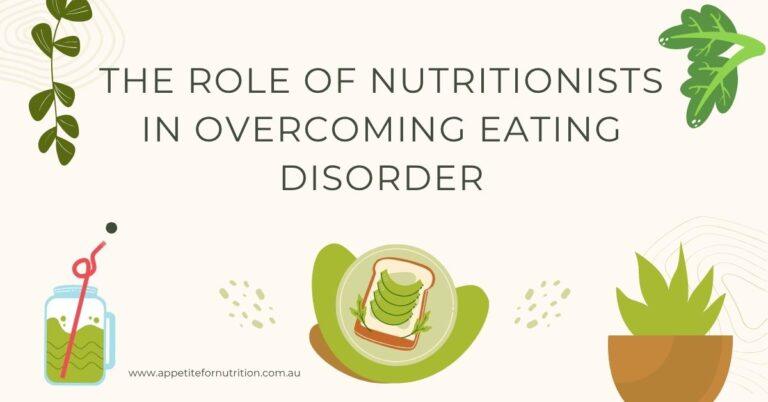
Nutrition and Dementia – How Can I Help Optimise My Nutrition?
For individuals living with dementia, even simple daily activities like eating can become challenging due to physical, emotional, and cognitive changes. Nutrition plays a vital role in maintaining strength, mood, and overall quality of life — for both the person with dementia and their caregivers.
Below are practical, evidence-informed tips to help support healthy eating, maintain weight, and make mealtimes more enjoyable.
Memory-Related Challenges: Forgetting to Eat and Drink
One of the most common difficulties faced by people with dementia is forgetting to eat or drink. This can lead to weight loss, fatigue, or dehydration.
Strategies to Help Remember:
Set Reminders: Use alarms, phone calls, or daily check-ins from friends, family, or carers. Sticky notes in visible spots can also serve as gentle cues.
Organise in Advance: Plan a week of meals or snacks ahead, including times for eating.
Keep Snacks Visible: Place healthy, ready-to-eat snacks (like yoghurt, muesli bars, or fruit) on the coffee table or dining bench.
Eat Together: Sharing meals with others provides companionship and encourages regular eating.
Pre-Packaged Meals: Home-delivered or frozen meals can reduce stress and ensure consistent nutrition.
Offer Variety: Provide multiple small options at mealtimes (e.g., yoghurt, cereal, fruit, and juice at breakfast) to encourage eating.
Low Appetite: Encouraging Better Food Intake
Changes in taste, smell, or mood can often lead to reduced appetite. It’s important to make food enjoyable, nourishing, and easy to eat.
Tips to Boost Appetite:
Small, Frequent Meals: Offer 5–6 smaller meals or snacks throughout the day rather than three large ones.
Nourishing Drinks: Try full-cream milk, smoothies, or dietitian-prescribed supplements to prevent unintentional weight loss.
Calorie-Dense Foods: Add energy-rich items like dips, cheese, crackers, avocado, baked beans, and custard.
Prioritise Protein: Focus on the protein portion (e.g., eggs, meat, tofu, beans) to maintain muscle and strength.
Learn about Healthy Snacks on the Go: Dietitian Top Picks from Australian Supermarkets
Enhancing Mealtimes: Creating a Calm, Supportive Environment
The environment can make a significant difference in how well someone eats.
Practical Tips:
Offer Finger Foods: For those who find cutlery challenging, finger foods like chicken nuggets, mini quiches, or vegetable sticks can make eating easier.
Minimise Distractions: Turn off the TV and keep the dining area quiet and calm.
Simplify Table Settings: Use plain, contrasting plates and tablecloths to help food stand out visually.
Model Eating: Eat alongside the person to demonstrate and encourage participation.
Familiar Foods: Stick to meals they recognise and enjoy from their past.
Keep a Routine: Serve meals at consistent times each day to establish familiarity and comfort.
Stay Patient: Allow plenty of time for meals, and approach each eating session with empathy and calm.
Additional Care Tips
Hydration: Offer fluids regularly — water, smoothies, or soups. Use colourful cups or straws to make drinking easier.
Comfortable Environment: Ensure the room is well-lit and the person is seated comfortably.
Adaptive Utensils: Consider using utensils designed for people with reduced mobility or coordination.
Engage the Senses: Use aromatic herbs and colourful foods to make meals more appealing.
Encourage Gentle Activity: Short walks or light stretching can help stimulate appetite.
Monitor Weight: Keep track of weight changes and seek professional guidance if you notice ongoing loss or gain.
Meal Plans for Brain Health
Structured meal plans can help take the stress out of daily food choices. Consider exploring our evidence-based nutrition programs designed to support brain and cognitive health:
Each plan has been created by our Accredited Practising Dietitians to promote energy, focus, and overall wellbeing — perfect for individuals managing cognitive decline or dementia.
Learn More
If you or a loved one is navigating dementia, our dietitians can help create a personalised nutrition plan tailored to individual needs, preferences, and challenges.
Book an appointment online for tailored dementia nutrition support
Or learn more about nutrition and brain health through our latest blogs and programs
If you’d like help creating a nutrition plan for yourself or a loved one living with dementia, our team of Accredited Practising Dietitians provides expert, compassionate care.
Contact Appetite for Nutrition today to arrange a consultation or explore our dementia-friendly meal plans and programs.
We offer both general nutrition consults and specialised dietitian support (Bariatrics, Women’s Health, Feeding Therapy, Eating Disorders, Gut Health, Sports Nutrition) available online and in person across Brisbane, Gold Coast, Melbourne, Shepparton, Bendigo and Albury-Wodonga.
This blog was updated October 2025.
Frequency Asked Questions
Find quick answers to common questions
Our team of NDIS-registered dietitians helps clients make practical, evidence-based food decisions that fit their goals, lifestyle, and budget.
While diet can’t cure dementia, evidence shows that proper nutrition supports brain function, improves mood, and reduces the risk of malnutrition and dehydration.
Stay calm, offer small frequent snacks, and try favourite or familiar foods. Sometimes, texture changes or colourful presentation can help. A dietitian can provide tailored strategies.
Yes, but it’s best to check with a registered dietitian or healthcare provider before introducing supplements to ensure they’re appropriate for the person’s medical condition and medications.
Offer fluids regularly in small amounts and use visually appealing cups. Foods with high water content, like watermelon or soup, also help maintain hydration.
If you notice weight loss, reduced appetite, swallowing difficulties, or frequent forgetting to eat, it’s time to book an appointment with an Accredited Practising Dietitian
(Book a consultation with an Appetite for Nutrition dietitian to get started.)



